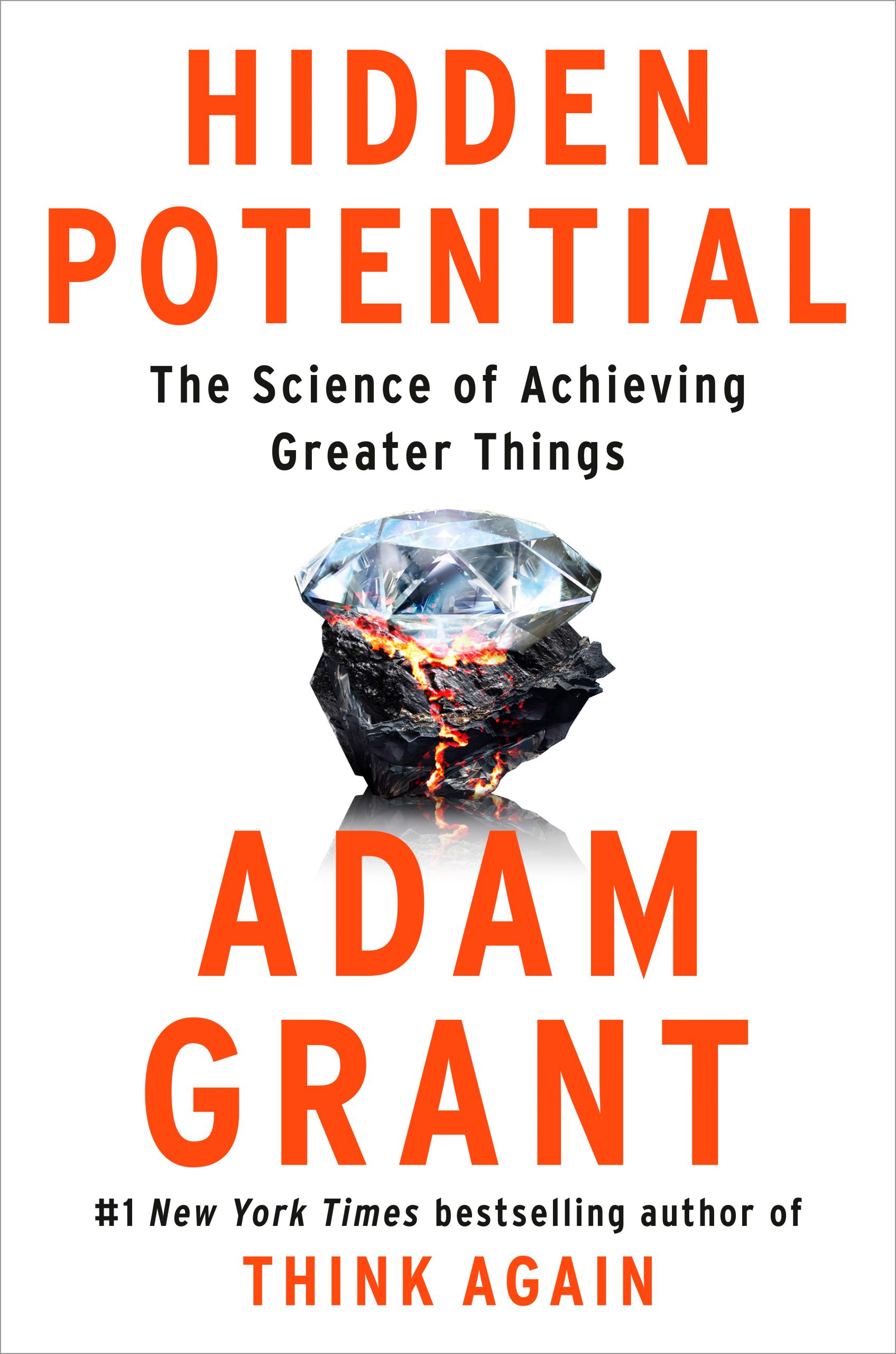
Rating: ★★★★☆ (4.1/5)
Adam Grant’s Hidden Potential: The Science of Achieving Greater Things asks a deceptively simple question: what if progress is less about the gift you were born with and more about the character you build, the scaffolds you use, and the learning systems around you. In trademark Grant fashion, the book blends research summaries, case studies from classrooms to boardrooms to Olympic training centers, and crisp advice about improving how we improve.
What the book argues
Grant’s thesis has three pillars.
- Character skills beat static talent.
He highlights three habits that unlock growth: being an imperfectionist who knows when to ship work at “good enough,” a discomfort seeker who deliberately steps into stretch zones, and a sponge who absorbs and filters useful feedback. The point is not hustle for hustle’s sake, but smart stress followed by recovery and reflection. - Progress is a design problem.
Instead of relying on willpower, Grant urges readers to build scaffolding: mentors who nudge, peers who push, checklists that standardize quality, and environments that make the better choice the easier choice. He is at his best when he shows how small structural tweaks improve outcomes for the underestimated and overlooked. - Measure the climb, not the peak.
Admissions, hiring, and promotion often overvalue polished resumes and undervalue trajectories. Grant argues for spotting “uncut diamonds” by assessing rate of improvement, quality of practice, and the difficulty of the path already traveled.
Pages that pop
- Imperfectionism in action. The idea that perfectionism kills curiosity is not new, but Grant makes it practical by pairing lower-stakes reps with faster feedback loops.
- The discomfort plan. Schedule awkward, unfamiliar reps on purpose. If you never feel clumsy, you are not learning.
- The sponge mindset. Seek many inputs, then filter hard. Not all advice is created equal.
Where readers split
Some educators and long-time practitioners will find parts of the book familiar. One veteran teacher called it a pop-science remix that leans on sports metaphors and tidy anecdotes. Others loved the accessible tool kit, including Grant’s free quiz that maps your bias toward imperfectionism, discomfort seeking, and sponge-like learning. Your mileage will depend on whether you want fresh primary studies or a polished synthesis with ready-to-use language.
On education, the book’s call to expand literary canons and personalize reading lists collides with today’s reality of tighter curricula and book bans. That tension is real. Grant writes aspirationally about systems change, but district constraints can blunt implementation.
On audio, Grant’s narration includes light humor and personal asides. Some listeners enjoy the energy, while others find the style distracting.
What I took away
- Talent is overrated when practice is designed well. Reps matter, but only if they are specific, varied, and quickly reviewed.
- Character is trainable. Humility, grit, and curiosity are not fixed traits. They grow when we normalize mistakes, make feedback less personal, and reward effort that targets weaknesses.
- Opportunity is a system. If we care about equity, we should score applicants on improvement curves and context, not just polished end points.
Who should read this
- Leaders, coaches, and teachers who want structure for building growth cultures.
- Early career professionals seeking a roadmap for faster learning.
- Hiring managers and admissions teams exploring fairer, future-focused evaluation.
Caveats
If you want dense methodology or exhaustive meta-analyses, this is not that book. Think of Hidden Potential as a field guide that translates academic ideas into memorable practices. Pair it with more technical texts if you need deeper evidence reviews.
Final verdict
Hidden Potential is an engaging, research-grounded invitation to rethink how progress happens. Even when the stories feel polished, the core playbook holds up: design better practice, cultivate character skills, and build systems that notice the climb. For readers who value practical optimism backed by social science, this is a worthwhile addition to the shelf.
👉 You can get your copy here: Buy on Amazon


